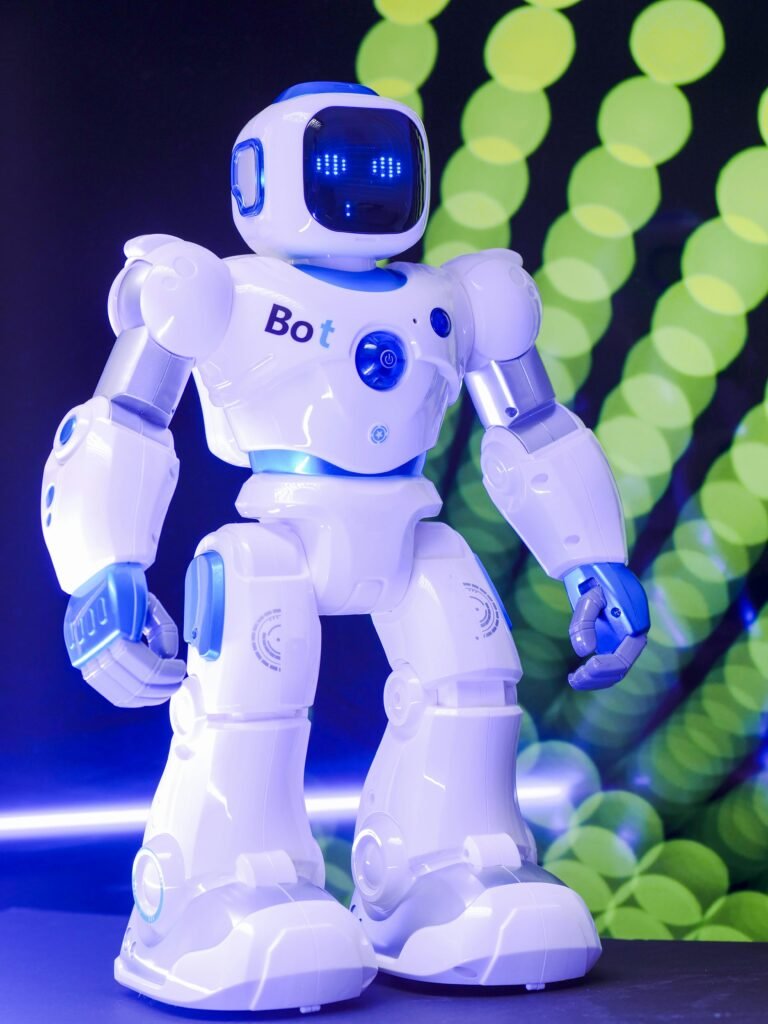Table of Contents
Definition of Artificial Intelligence
Artificial Intelligence (AI) refers to the development of computer systems capable of performing tasks that normally require human intelligence. These tasks include learning, reasoning, problem-solving, speech recognition, and decision-making. In simple terms, AI enables machines to think and act like humans, making our lives easier and more efficient.
AI in Daily Life

AI is deeply integrated into everyday activities. From virtual assistants like Siri, Alexa, and Google Assistant to personalized recommendations on platforms like Netflix and YouTube, AI plays a role in shaping our digital experiences. Smartphones use AI for facial recognition, voice commands, and predictive typing, while navigation apps like Google Maps rely on AI to suggest the fastest routes.
AI in Healthcare
The healthcare industry has greatly benefited from AI. It assists doctors in diagnosing diseases more accurately, predicting patient outcomes, and even discovering new drugs. AI-powered tools can analyze medical images, monitor patients remotely, and provide early warnings about health risks. This not only saves time but also improves patient care and overall healthcare efficiency.

AI in Business and Economy
Businesses use AI to streamline operations, improve customer service, and increase efficiency. Chatbots provide 24/7 customer support, while AI algorithms analyze consumer behavior to create personalized marketing campaigns. In finance, AI detects fraudulent transactions and manages investments through automated trading systems. This technological shift has created smarter business strategies and enhanced productivity.

AI in Education
AI is transforming education by offering personalized learning experiences. Intelligent tutoring systems adapt to students’ learning speeds, helping them understand complex topics better. AI also automates administrative tasks for teachers, giving them more time to focus on teaching. Online learning platforms powered by AI make education accessible to people around the world.
AI in Transportation
Self-driving cars, smart traffic systems, and ride-hailing apps are examples of AI in transportation. These technologies aim to reduce accidents, save fuel, and make travel more efficient. AI-powered logistics also help companies manage deliveries, track shipments, and minimize delays.
Advantages of AI in Modern Life
Saves time and effort in everyday tasks.
Enhances accuracy and decision-making.
Improves healthcare and patient safety.
Boosts business growth and customer satisfaction.
Expands access to quality education.
Challenges of AI
Despite its benefits, AI comes with challenges. Concerns about job displacement, privacy, security, and ethical issues must be addressed. Proper regulations and responsible use of AI are essential to ensure that it benefits society as a whole.
Conclusion
The importance of Artificial Intelligence in modern life cannot be overstated. From simplifying daily routines to transforming industries such as healthcare, business, and education, AI is shaping a smarter and more connected world. While challenges exist, its potential to improve human life is immense. Embracing AI responsibly will help us unlock opportunities for a better future.

